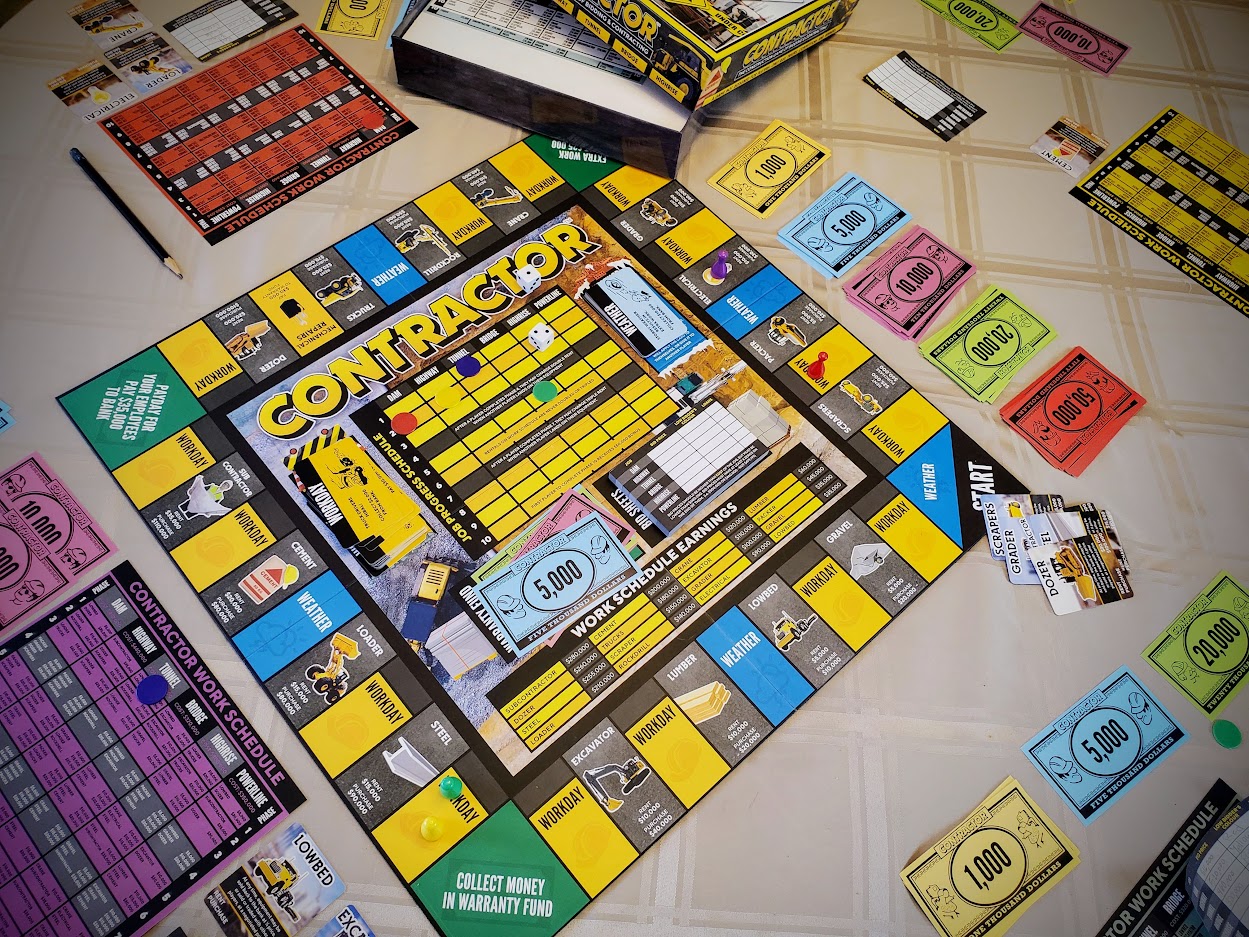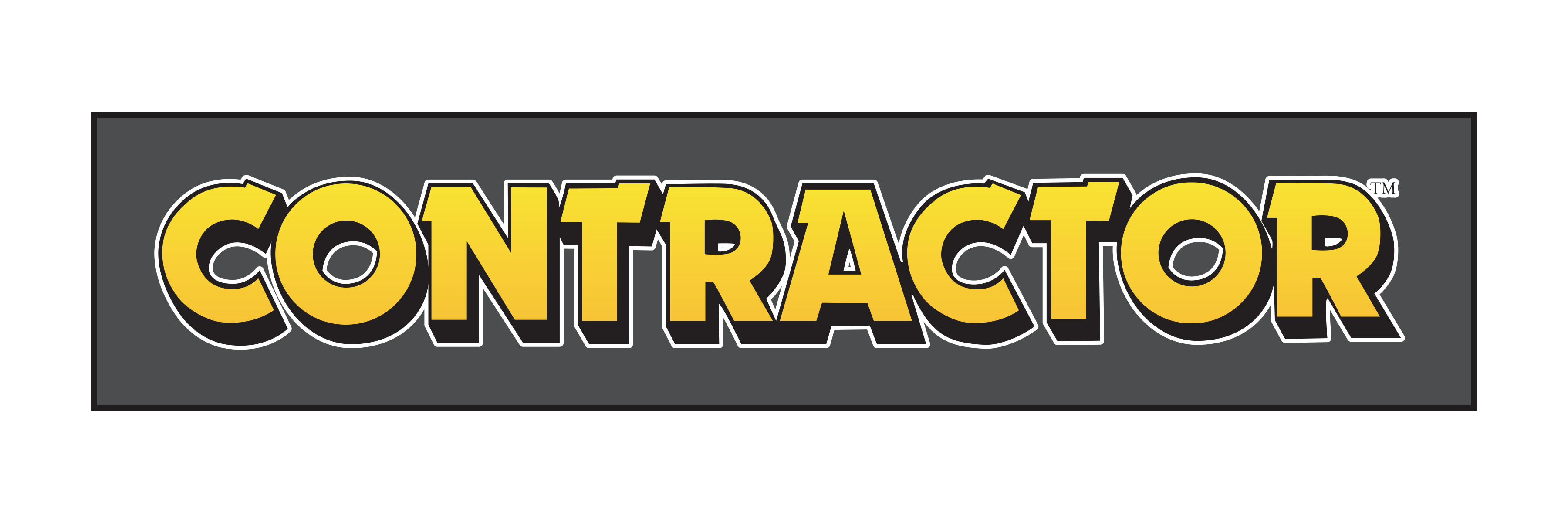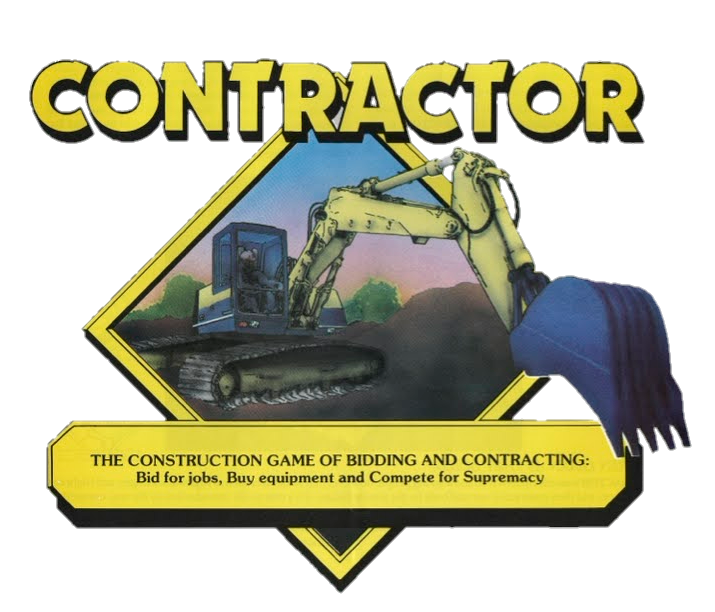

Hey there—ready to jump into the Contractor Board Game? Let's go over some essential tips to help you get started and make the most of your first game!
When you’re playing your first game, don't worry too much about the bidding process. The results of the bidding wars won't make or break your game, and you will be awarded at least one contract whether or not you win at bidding. Focus more on understanding the flow of the game—particularly developing a strategy for purchasing equipment. As you play more, you'll develop your personal strategy for bidding.
Similar to owning property in Monopoly, owning equipment in Contractor is key to your success. Here’s why:
Some pieces of equipment can generate a lot of money in the early workdays, so prioritize buying equipment early in the game. This initial investment can pay off significantly as the game progresses. Pay attention to particularly valuable pieces of equipment that you need often for your project. Purchase those as early as you can, if they’re available. Remember that your opponents may be paying attention to your needs too and racing to purchase something before you.
One example is the subcontractor equipment card for the Highrise project. This project uses the subcontractor for all of its last 5 phases. If Highrise is your project, then owning this card will save you hundreds of thousands of dollars as you approach the end of the game. Letting an opponent own this card means they will earn hundreds of thousands of dollars in rent from you at the end of the game.
Pay attention to the equipment your opponents need most and try to purchase it before they do. This strategy not only gives you rental income when they need to use it, but also disrupts their plans and gives you a competitive edge. It stops them from saving money and gives you additional income to avoid loans and win the game.
At the start of your turn, before you roll the dice, always check if you can afford to purchase any available equipment or if there’s value in attempting to trade equipment with an opponent. This constant assessment ensures you don't miss out on lucrative opportunities to earn or save money.
The bottom of the board lists the rental earning potential for each piece of equipment. If you’re unsure which equipment is lucrative, use this information to make informed decisions about which equipment to buy.
When you land on a workday and have multiple jobs, remember that you don’t need to rent all equipment for all jobs at once. The game’s rules allow you to complete a phase of one job, get paid, then work on the next phase of another job. This allows you to rent equipment efficiently and complete more jobs—especially in the early game when you might not have enough money on-hand for all of your rental needs.
After completing stages 4 and 7 of your projects, you can double or triple the rent when someone lands on your equipment spaces (not on opponent workdays). This can be especially profitable with high-value equipment cards like subcontractors and scrapers.
At the end of the game, you'll sell all your equipment back to the bank at half the purchase price. Owning lots of valuable equipment cards can give you a nice end-game bonus, so keep that in mind as you purchase equipment early on and consider trading equipment later in the game.
With these tips, you’re ready to dive into your first game of Contractor. Remember, practice makes perfect. Enjoy your game and happy contracting!
Don’t own Contractor yet? Purchase your copy today
